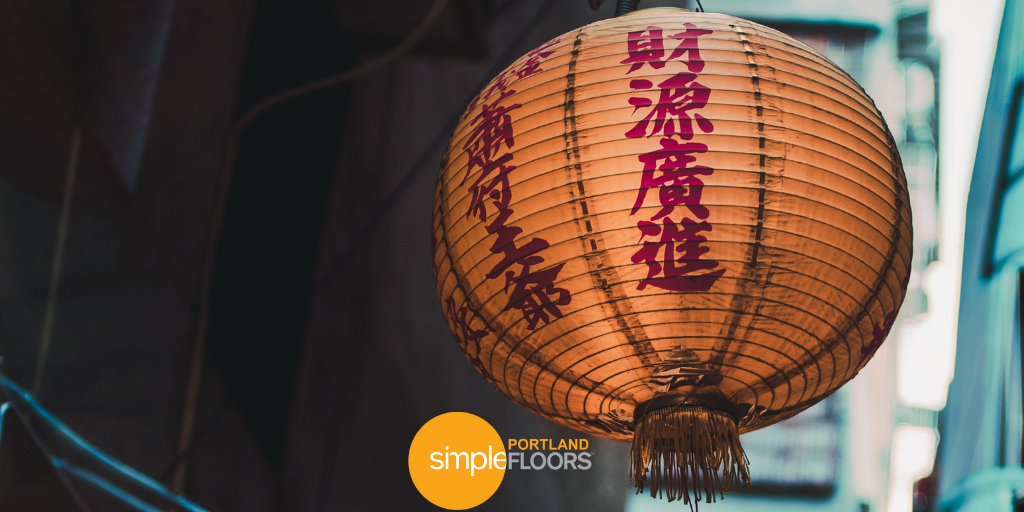Our Portland metro area is steeped in Asian culture and history.
But let’s start with something that is often confused with being of Asian influence, but wasn’t exactly. Have you heard about being shanghaied? And does it have to do with the Shanghai region in China?
Why is it called ‘Being Shanghaied?’
Many able-bodied men who drank too much were supposedly shanghaied from 1855 until as late as 1941. There were a number of these able-bodied men in town working as loggers, builders, and more. And, when the work week or project was over, they’d head to the bars to let off some steam.
Unfortunately, it left them open to being shanghaied.
So what does it mean to be shanghaied? Well, simply put, it meant you were kidnapped. More often than not, the bartender would put something in your drink, or some men would come up behind you and hit you on the head to knock you out.
Then you were taken down to the docks and put on a ship. By the time you woke up, you had become a sailor for no pay whether you wanted to or not. It was called being shanghaied because often the boats sailed between Shanghai, China, and the west coast ports of San Francisco, Portland, and up to Puget Sound.
Many sailors would jump ship when the boats were docked in San Francisco as the sailors thought they’d try to become wealthy overnight as a miner. The ability to quickly grab and move an able bodied man quickly needed to be well organized. Supposedly there were tunnels underneath Portland to assist in this. Some say there has been no evidence found that there were underground tunnels.
But other experts have found areas that could have been tunnels connecting the basements of the local bars and hotels to Portland’s Old Town also known as Chinatown. Being shanghaied dropped off when steamships replaced sailing vessels, but then increased during the Depression. There have been no reports of people in the United States being kidnapped and impressed into duty after 1945.
On to the Fun Stuff
Let’s jump into the modern-day and the places and events you can go to today to explore and learn more about Asian culture and its impact in the Portland area. In a prior post, we mentioned that Portland is home to the oldest continuously run tofu manufacturer. So check that out if you haven’t yet.
The Japanese Gardens
You can steep yourself in Asian culture at the tea gardens at The Japanese Gardens. You’ll find amazing peace sitting in the Umami Cafe looking out at the lush gardens:
Located at: 611 SW Kingston Ave Portland, OR 97205. (503) 223-1321
Portland Art Museum
If you want to appreciate art, there is an ever growing Asian art section at the Portland Art Museum. There is also a specialized museum in Chinatown that is small but has a fascinating amount of exhibits.It’s located at:
127 NW Third Avenue
Portland, OR 97209
info@portlandchinatown.org
503-224-0008
Museum hours
Friday – Sunday: 11:00 AM – 3:00 PM
Monday – Thursday: Closed
Japanese American Museum Of Oregon
And finally, you can check out the Japanese American Museum of Oregon. While it’s small, the curators are dedicated to preserving and educating about the history of Japanese in Portland.
Something important to note is that the Japanese American Museum of Oregon has moved to the Naito Center in northwest Portland. Check it out at:
411 NW Flanders St, Portland, OR 97209
Museum hours
Fridays-Sundays 11am-3pm. Please call 503-224-1458 or email info@jamo.org to reserve a time for entry.
Festivals
There is usually something exciting going on year round here in Portland celebrating Asian culture. We’re only listing a few to get you started. And please remember to check with the organizers to verify where and when the festival will be held.
O-Shogatsu
In January, check out O-Shogatsu celebrating the Japanese New Year. It’s held at the Japanese Gardens where you can have a lovely tea at the Umami Cafe.
The Japanese started celebrating New Years on January 1 starting in 1873. There are special customs and beliefs such as ensuring your whole house is clean and organized before the bells strike midnight. It is believed it sets the tone for a hopeful and prosperous new year.
At this festival, you can check out the traditional arrangements of pine, bamboo, and plum branches as well as the traditional lion dance.
MochiTsuki
This beloved festival highlights the Japanese tradition of pounding steamed sweet rice into a mochi. The act of pounding is called mochitsuki and can be quite the event celebrating community.
The MochiTsuki festival went virtual in 2021, and had to be canceled in 2022 because they didn’t feel it would be safe for the community. They still have their 2021 virtual festival online, and there’s plans for an in person event in January 2023.
The event has activities and events every day of January including tea ceremonies, trivia, flower arrangement and more. So mark your calendars.
Lunar New Year
There are a number of Lunar New Year festivals around the Portland metro area. The celebration at Lan Su Chinese Garden is two weeks of fun including lion dances, calligraphy, martial arts demonstrations, and more. Every visitor receives a lucky red envelope (hong bao).
You can visit the gardens all year round and participate in events including brush painting and flower arranging using traditional methods.
Chinese Festival
There is plenty to do during the summer as well. In August at the Pioneer Courthouse Square you can enjoy the Chinese festival. It’s a day full of food, music and arts perfect for all ages. There is also poetry reading, folk dancing, and artists who provide face painting, writing your name in calligraphy, and more.
O-Bon Sapporo Cultural Festival
Also in August is an o-bon festival in the Japanese Gardens in Portland. There is music, dance, and educational talks. Ramen and Sapporo beer is available until they run out. https://japanesegarden.org/events/obon-sapporo-cultural-festival
And this is just the tip of the iceberg. What’s your favorite thing to do to learn more about Asian culture and history?









